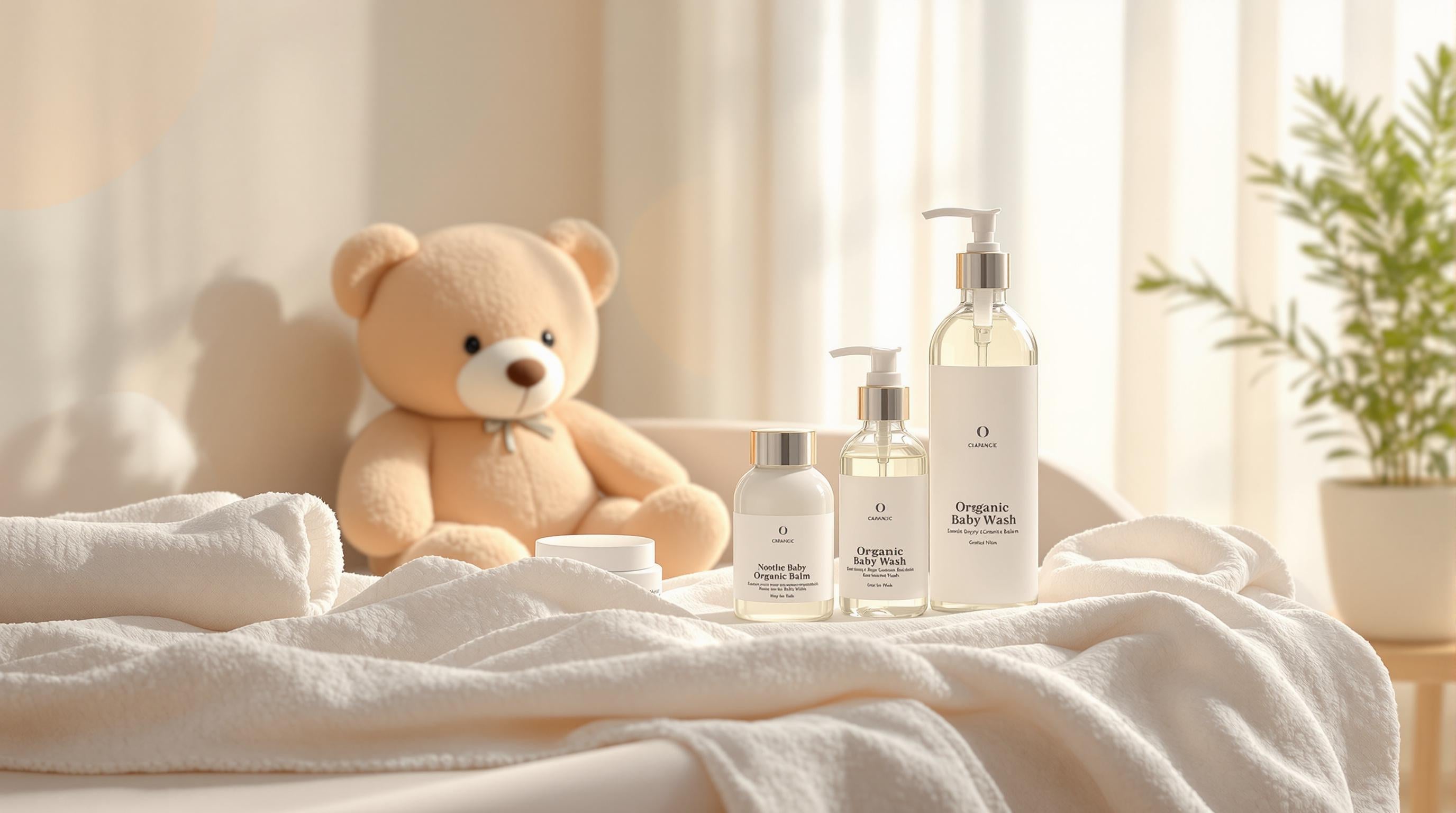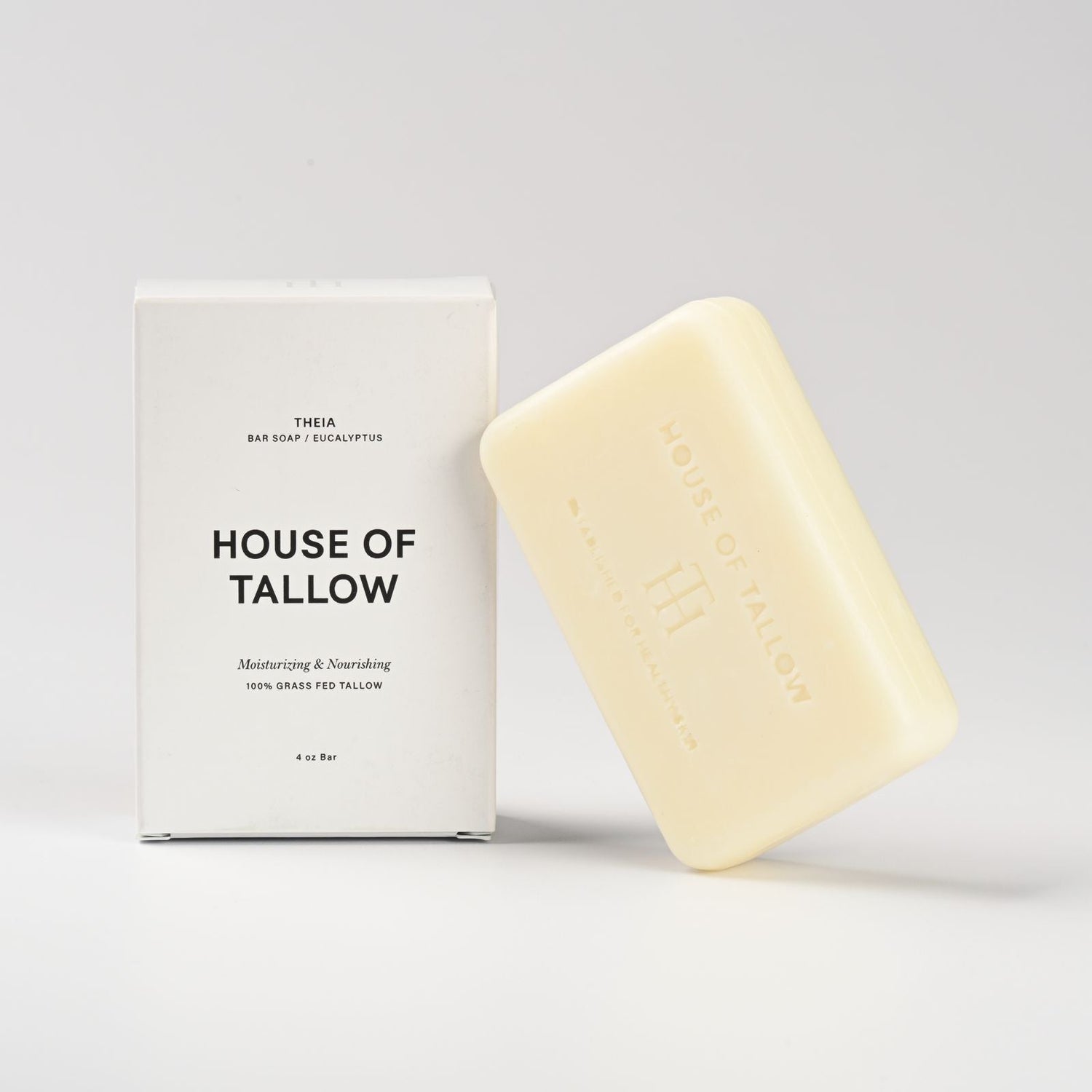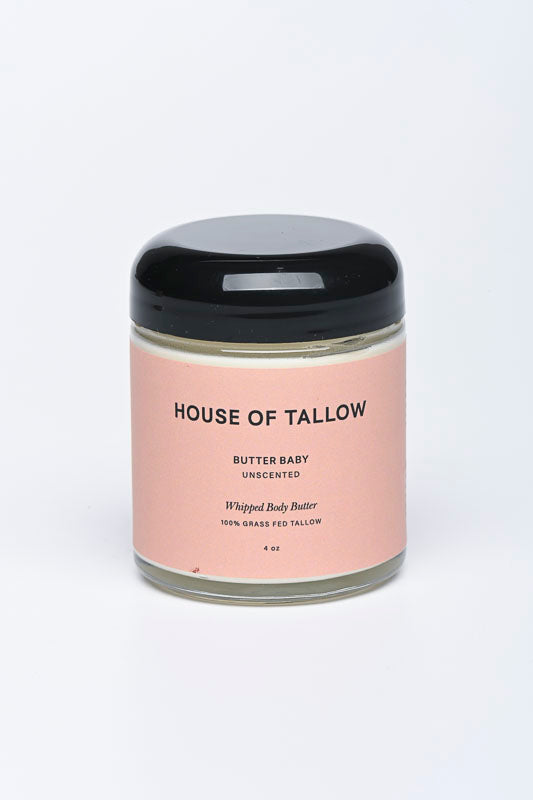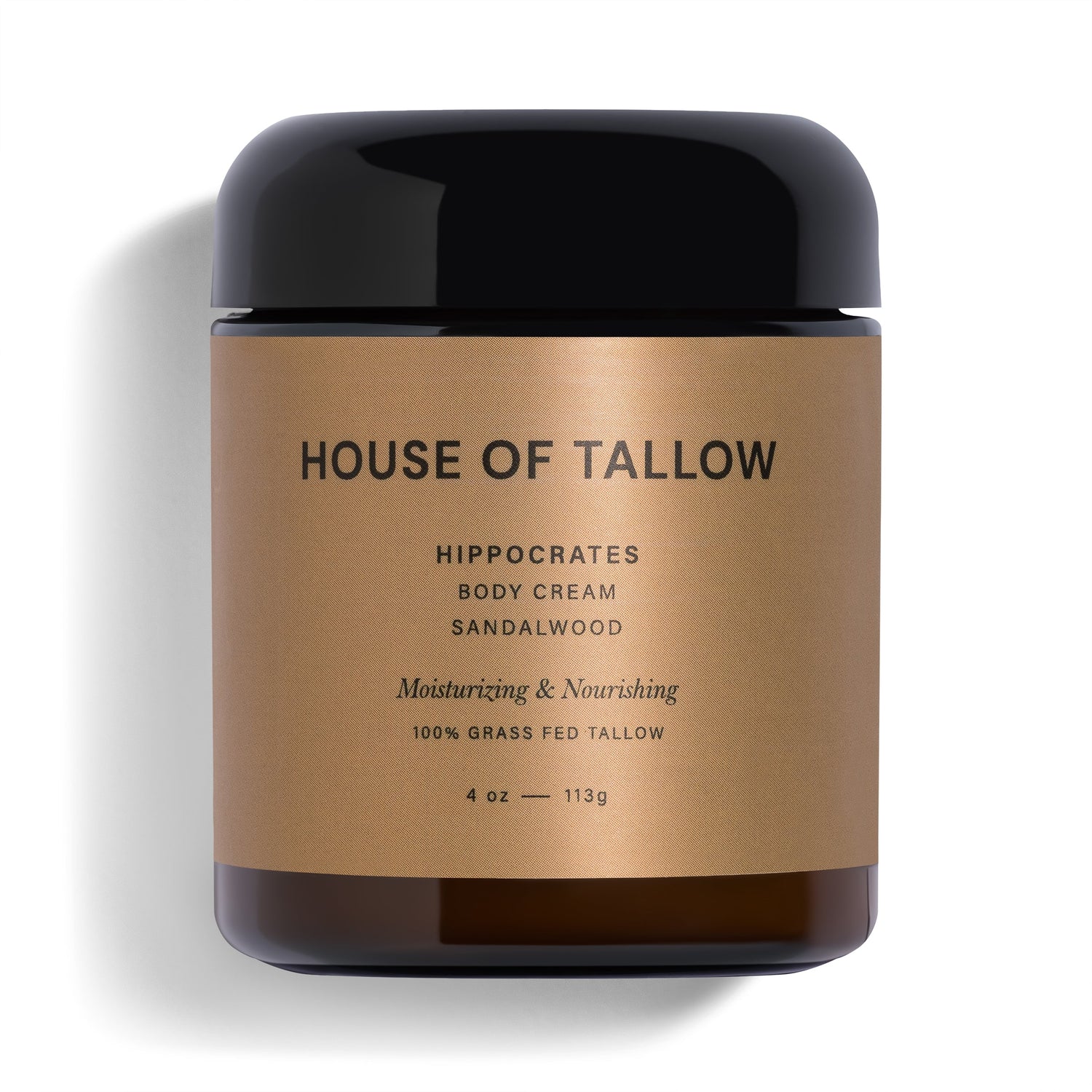Your baby’s skin is delicate and needs special care. Choosing the right skincare products can protect their skin from irritation, dryness, and harmful chemicals. Here’s what you need to know:
- Use gentle, natural ingredients like calendula, shea butter, and coconut oil to nourish and protect.
- Avoid harmful chemicals such as parabens, synthetic fragrances, phthalates, and sulfates.
- Look for trusted certifications like EWG Verified, USDA Organic, and Hypoallergenic for safer choices.
- Tallow-based products are a natural option that mimic skin’s oils and provide deep hydration.
Always patch-test new products and opt for brands that prioritize transparency and sustainability. This ensures your baby’s skin stays healthy while supporting eco-friendly practices.
Dermatologist's Best Baby Skincare Products
What to Look for in Baby Skincare Products
Choosing the right baby skincare products means understanding which ingredients are helpful and which ones to steer clear of. This ensures your baby's delicate skin stays healthy and avoids irritation.
Gentle Ingredients That Work Well for Babies
Certain natural ingredients are perfect for a baby’s sensitive skin. These options are known for their mild yet effective properties:
| Ingredient | Benefits for Baby Skin |
|---|---|
| Aloe Vera | Hydrates and soothes without causing irritation |
| Chamomile | Helps reduce redness and calm sensitive skin |
| Calendula | Supports skin healing and provides a calming effect |
| Avocado Oil | Strengthens skin and delivers antioxidant benefits |
| Shea Butter | Deeply moisturizes with vitamins A, E, and F |
Ingredients to Avoid for Baby Skincare
Some ingredients can harm your baby's sensitive skin. Be sure to avoid these:
- Parabens: Preservatives that may interfere with hormone balance
- Synthetic Fragrances: Known to irritate sensitive skin
- Phthalates: Often found in fragrances and linked to hormone disruption
- Sulfates: Can strip away natural oils and cause dryness
Recognizing Trusted Certifications
Certifications can help you quickly identify safe and reliable baby skincare products. Here are some important ones to look for:
| Certification | What It Ensures |
|---|---|
| EWG Verified | Free from harmful chemicals and meets strict safety standards |
| Leaping Bunny | Confirms products are cruelty-free |
| USDA Organic | Contains certified organic ingredients |
| Hypoallergenic | Designed to reduce the risk of allergic reactions |
Brands like Burt's Bees Baby Bee offer natural, pediatrician-tested products that meet these certification standards [4].
Why Tallow-Based Skincare is a Good Choice
Tallow-based skincare provides a nutrient-packed, natural option that works well for a baby's sensitive skin.
How Tallow Benefits Baby Skin
Grass-fed tallow has a nutrient makeup that closely resembles the natural oils in human skin. This similarity makes it an excellent choice for baby skincare. Here’s why:
| Nutrient | Benefit for Baby Skin |
|---|---|
| Vitamins A and D | Help with skin renewal and strengthen the skin's barrier |
| Vitamins E and K | Offer antioxidant protection and improve skin elasticity |
| Fatty Acids | Provide deep hydration without clogging pores |
Tallow nourishes the skin while mimicking its natural structure, making it a gentler option compared to synthetic products. Plus, using tallow from grass-fed animals supports eco-friendly farming practices, which is a win for both your baby and the planet.
Tallow-Based Products for Babies
House of Tallow’s unscented Tallow Baby Cream is a popular choice for delicate infant skin. It’s made with pure, grass-fed tallow and contains no added fragrances.
When choosing tallow-based products for your baby, look for:
- Grass-Fed Sources: These offer higher nutrient levels and better purity.
- Simple, Unscented Formulas: Reduce the risk of irritation or allergic reactions.
- Sustainable Production: A better choice for your baby and the environment.
For best results, apply tallow-based products to damp skin right after a bath to lock in moisture. Always do a patch test on a small area first to ensure there are no sensitivities.
sbb-itb-a1b9fc0
Tips for Choosing the Right Baby Skincare Products
How to Read and Understand Labels
Decoding skincare labels gets easier when you know what to focus on. Keep an eye on these key areas:
| What to Check | What to Look For | What to Avoid |
|---|---|---|
| Certifications & Ingredients | EWG Verified, Leaping Bunny, Natural oils | Parabens, phthalates, sulfates |
For example, brands like Pipette stand out by listing their ingredients clearly and using plant-based squalane to provide gentle hydration without causing irritation [2].
Testing Products Before Use
Performing a patch test is a simple way to ensure a product is safe for your baby's skin. Here's how:
- Pick a small area on your baby's inner arm or leg.
- Apply a tiny amount of the product.
- Wait 24-48 hours and monitor for signs of redness, rash, or irritation.
If you notice any reaction, stop using the product immediately and consult your pediatrician. Once you've confirmed the product is safe, you can also take a moment to consider its impact on the environment before making your final decision.
Choosing Brands That Care About the Planet
Brands that prioritize eco-friendly practices often create safer, cleaner products. For instance, House of Tallow highlights their commitment by using grass-fed sourcing methods.
When researching brands, consider these factors:
- Sustainable Ingredient Sourcing: Look for products made with responsibly sourced materials.
- Transparent Packaging and Production: Support brands that openly share their manufacturing and sourcing processes.
"The combination of natural ingredients and sustainable practices isn't just better for babies - it's better for the planet they'll inherit [2]."
Conclusion: Choosing Safe Skincare for Your Baby
Key Points for Parents to Remember
Picking the right skincare for your baby doesn't have to be stressful. Look for products with natural ingredients like calendula, shea butter, and avocado oil - these are gentle and help care for sensitive skin [1]. When shopping, choose brands that are upfront about their ingredient sources and production methods.
| Feature | Why It Matters | Example |
|---|---|---|
| Natural, Certified Ingredients | Gentle on skin and eco-conscious | Pipette's plant-based squalane, House of Tallow Baby Cream |
| Traditional Solutions | Trusted for generations | Tallow-based products for sensitive skin |
By focusing on these factors, you can pick products that meet your baby's needs and reflect your personal values.
Final Thoughts and Suggestions
Making informed decisions supports your baby’s skin health. Combining traditional ingredients, like tallow, with modern practices can provide effective care for delicate skin. Brands such as Primally Pure and House of Tallow showcase this balance by offering natural, responsibly sourced options [4].
For example, House of Tallow’s unscented Baby Cream ($29.99) is a budget-friendly option made without unnecessary additives. To get the most out of your baby’s skincare:
- Patch test new products on a small area before full use
- Look for natural ingredients and certifications you trust
- Steer clear of synthetic preservatives and artificial scents
The goal is to choose products that protect and nourish your baby’s sensitive skin while also supporting sustainable practices for a better future.
FAQs
Which chemical is harmful for baby skin?
Some chemicals in baby skincare products can irritate or harm sensitive skin. Here are a few to watch out for:
| Chemical | Potential Risks | Common Products Found In |
|---|---|---|
| Formaldehyde | Can cause skin irritation, allergic reactions | Baby wipes, liquid soaps [1] |
| Parabens | May disrupt hormones, cause skin sensitivity | Lotions, creams [3] |
| Phenoxyethanol | Linked to skin irritation, possible nervous system effects | Moisturizers, cleansers [3] |
For safer choices, look for products certified by organizations like EWG Verified or Leaping Bunny, which follow strict safety guidelines and avoid harmful ingredients [2]. Natural options, such as plant-based oils and extracts, can also help protect your baby's delicate skin.
Products approved by dermatologists or pediatricians can offer extra peace of mind. Still, always check the ingredient list - don't just trust labels like "natural." Consider nutrient-rich options like those with tallow, which can support and nourish your baby's skin barrier effectively.




